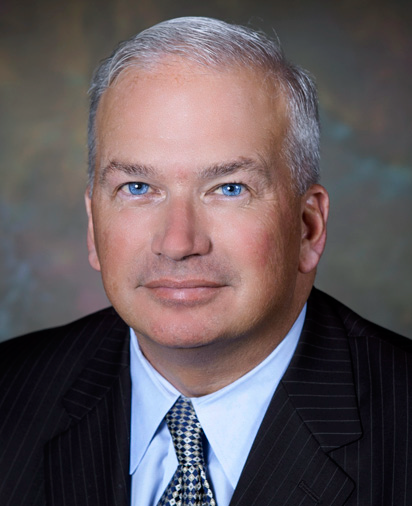Conservative Power Rises in Senate
With the replacement of two key GOP moderates, Majority Leader Scott Fitzgerald has far more power.
For years, Senate Majority Leader Scott Fitzgerald could not schedule votes on important bills until he knew how two Republican bulls – then-Senate President Mike Ellis and former Sen. Dale Schultz – would vote on them.
As former majority leaders, Ellis and Schultz knew how to make the Senate run and how to choke it to a standstill. If they defected, the priorities of Fitzgerald, Gov. Scott Walker and other Republicans were sidetracked.
When they disagreed with their more conservative fellow GOP legislators, Ellis and Schultz used different tactics. They delayed votes as long as they could (the political version of “running out the clock”), privately floated compromises to dial back the changes and – sometimes – voted against them.
But usually, they gritted their teeth and voted for the changes. In their first 20-plus years in the Senate, for example, neither Shultz nor Ellis championed the carrying of concealed weapons. But both of them voted for that law on June 14, 2011.
In the 2013-14 session, Schultz broke with Fitzgerald publicly by openly working with now-retired Senate Democrats Bob Jauch and Tim Cullen on mining and other issues. In response to Tea Party-led challenges and RINO (Republicans In Name Only) accusations, Schultz and Ellis decided to not to seek re-election.They were replaced by conservatives who won’t give Fitzgerald anything like the pushback he got from Ellis and Schultz: Sen. Howard Marklein took Schultz’s seat. Sen. Roger Roth replaced Ellis.
Fitzgerald is smiling more than ever this session because the November elections added, besides conservatives Marklein and Roth, new Sen. Devin LeMahieu, another reliable conservative. A new GOP firebrand could arrive this summer in the special election to replace Sen. Paul Farrow, who is resigning to become the full-time Waukesha County executive.
Besides Marklein, Roth and LeMahieu, the Senate GOP’s roster of conservatives were bolstered with the addition of:
*Sen. Steve Nass, of Whitewater, a 24-year veteran of the Legislature and its biggest UW System critic. Nass has vowed to do all he can to block Gov. Walker’s plan to have the UW System operate independently by mid-2016, and that plan now seems dead. Nass accused the UW’s Board of Regents of abandoning middle-class residents when it raised tuition on non-resident and graduate students.
Nass didn’t consult Fitzgerald before scheduling two votes of the Senate Labor and Government Reform Committee he chairs on repealing or rewriting prevailing wage laws that specify wages and benefits that must be paid on state and local government construction projects. Nass’s petal-to-metal push to repeal prevailing wage laws made the odds of that happening “fuzzier,” Fitzgerald told reporters, and both of Nass’s proposals lost, 3-2, when Marklein sided with two Democrats.
“Repeal of prevailing wage is not dead,” Stroebel vowed after the committee votes. “I will continue to impress upon members of my caucus the importance of full repeal.” Stroebel also wants to eliminate the personal property tax and dismantle the Government Accountability board.
The Senate’s GOP caucus will tilt even further right if Rep. Chris Kapenga, of Delafield, replaces Farrow. The winner of the GOP primary between Kapenga and Brian Dorow, a Waukesha County Technical College dean, will be the next senator in the 33rd District.
Last session, Kapenga called for a national constitutional convention to fix problems that Congress won’t – or can’t – address. According to the Right Wisconsin Website, Kapenga has “called for the arrest of federal officials attempting to implement Obamacare in Wisconsin.” He also claims credit for helping find the UW System’s “$1-billion slush fund.”
This session, with so many more conservative GOP senators, will Fitzgerald confront demands for changes he may consider too extreme? That’s possible, observes political scientist and Marquette University pollster Charles Franklin: The first test, he notes, will be “if there are any problems passing all the elements that emerge from the Joint Finance Committee.”
And the second test, Franklin adds: “Perhaps the larger influence of the more conservative members will appear as standalone bills outside the budget.”
Steven Walters is a senior producer for the non-profit public affairs channel WisconsinEye. Contact him at stevenscwalters@gmail.com
If you think stories like this are important, become a member of Urban Milwaukee and help support real, independent journalism. Plus you get some cool added benefits.
The Roundup
-
Buffett Tour on Hold
 Jun 27th, 2005 by Michael Horne
Jun 27th, 2005 by Michael Horne
-
Museum’s Wish List
 Jun 20th, 2005 by Michael Horne
Jun 20th, 2005 by Michael Horne
-
Lottery Takes a Gamble
Jun 6th, 2005 by Michael Horne























As these puppets try to outdo each other the rest of us will watch our state and quality of life simply disappear. I will never, ever believe that any of them has a regret about underfunding any service. They don’t have hearts…just campaign funds.
We can survive this: Wisconsinites lived through the destructive conservative social engineering era of McCarthyism in the 50s (with its nationwide effect), and for that matter, there were 6+ decades of conservative social engineering that lead to their highly unsuccessful project called Prohibition, which eventually took a dive. And then there was the conservative politics that took hold in Europe in the 20s-30s too with its echoes being heard this year in places like Arizona and Indiana, and more subtly in Wisconsin too. Those Fitzgerald boys are part of a proud conservative tradition!